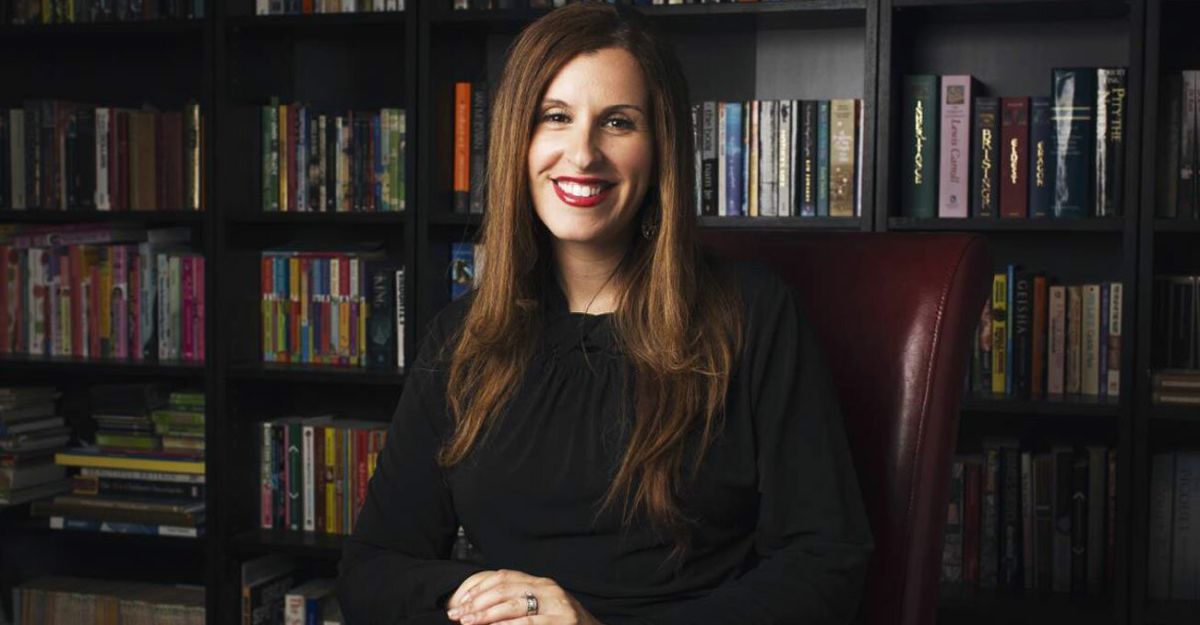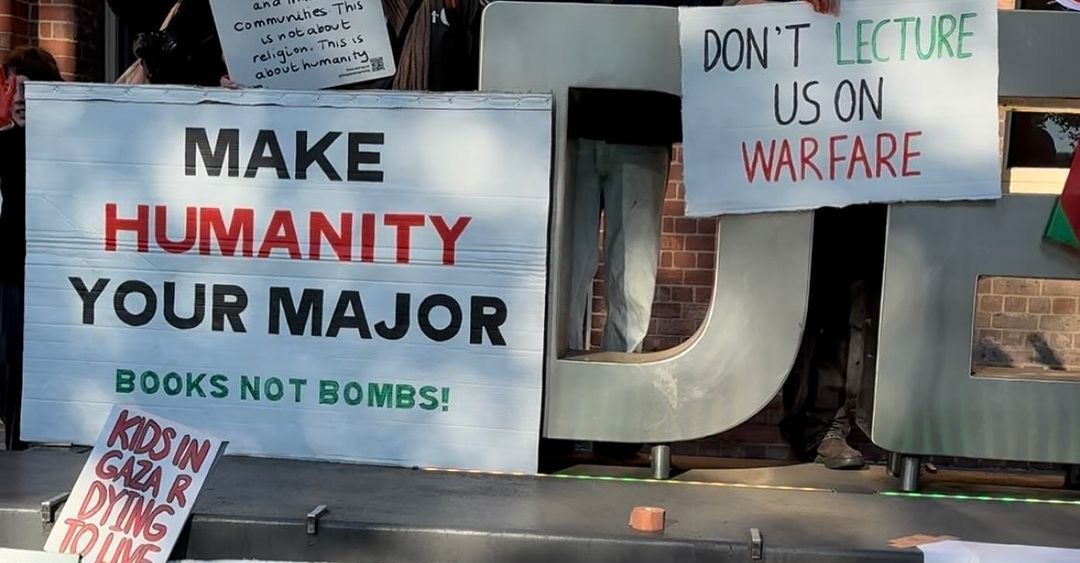Last week, five police officers turned up on my doorstep. They didn’t have a warrant to arrest me or search the house, but they insisted on coming inside and looking for me. They walked into my room as I was climbing out of bed and placed me under arrest. One officer stayed in the room while I stripped down to get dressed, telling my objecting housemate “it’s so she doesn’t jump out the window.” They handcuffed me in my bedroom, and the five of them walked me to a police car. In the interrogation room, two officers took turns shoving photos on the desk in front of me while I sat on a chair bolted to the ground. The photos, taken from a helicopter, allegedly showed me in a large group of protesters outside the Land Forces weapons convention. I was charged with affray. In layman’s terms, rioting.
Thousands of kilometres away, Israeli bombs were raining down on Northern Gaza, striking some of the last remaining shelter centres. Videos were emerging of Palestinians being forced to line up next to huge holes that looked like they could become mass graves, tanks planted unassumingly in the background of the footage. The Israeli Defence Forces were continuing to bomb residential areas of Beirut and villages in Southern Lebanon. And we didn’t know it yet, but Israel was getting ready for a set of strikes on Iran.
This is the world that we now live in. One where dozens have been arrested for protesting against a convention which used taxpayer funds to bring weapons companies to the heart of Melbourne to spruik their wares. One where those who stand against genocide are punished, and those who carry it out are celebrated.
The protests against Land Forces were organised by a diverse array of left wing and community groups, and drew in thousands of people across the week of 10-14 September. The opening ceremony of the convention was scheduled for 11 September, so we planned a mass picket and march for that morning. As we gathered in the dark outside Melbourne Exhibition and Convention Centre at 6am, our numbers grew. Student groups gathered together under banners scrawled with the names of their universities and schools. A seventy-year-old man who regularly protests for Palestine on Sundays. A young Palestinian woman who’d never been to a protest like this before. Faces appeared, as darkness turned to dawn. More than 2,500 people joined the picket that morning. And despite the best efforts of the police, we marched straight over to the back entrance of the Convention Centre where politicians, military officials and CEOs of weapons companies were being ushered into a lavish breakfast paid for by taxpayers. Protesters flooded the driveway they were meant to enter through and held the space against police horses while suited men watched from behind the glass doors of a hotel that was meant to get them close enough to easily enter. Our message was simple. Taxpayer funds should be used for improving healthcare, making access to childcare easier, and building new public housing. It should not be used to give purveyors of tanks and nuclear weapons an advertising opportunity.
The police presence was enormous. Thousands of Victorian officers, extra cops brought in from New South Wales, mounted units, batons, pepper spray and rubber bullets; they went all-out. As police pointed their semi-automatic rifles at us, I wondered how many innocent people would be killed by weapons produced through the deals going on inside the convention. Medics documented the decontamination of 131 pepper spray victims, and there were multiple hospitalisations. One photographer was shot in the ear with a rubber bullet, bled profusely and had to immediately have surgery. One protester was shot and suffered extreme bleeding, and fellow demonstrators had to set up a makeshift barrier around them with keffiyehs while waiting for an ambulance.
But despite the violence from police, the demonstrations had an important effect. It would have been a travesty for Australia’s biggest weapons convention to go ahead without opposition in the streets. Right behind the glass doors, corporations which sell nuclear weapons were networking and making deals. In the context of the genocide in Gaza, it was all the more important to demonstrate against the presence of Israeli weapons makers including Rafael and Elbit Systems. We showed that we won’t be silent in the presence of these merchants of death, and we marched in solidarity with peoples everywhere who are oppressed by imperialism and war.
On the second day of the convention, my dad called me up from a pub in New South Wales. “The right wing media are doing everything they can to make your side out as violent,” he yelled over the din. “But I’ll tell you one thing. Every single person in this pub, and I reckon every single person in this country, knows that Labor used taxpayer money to pay for an advertising show for Israeli weapons makers.” For the duration of the genocide, Labor has attempted to portray itself as neutral while signing back room deals with Israeli weapons manufacturers like Elbit systems and allowing Australian factories to produce parts for Israel’s fighter jets. In parliament, Labor politicians have skirted questions by the Greens and dodged the issue. But the protests against Land Forces exposed them in front of the whole country.
Since the protests, dozens of activists have been arrested or called in for interrogation. Many of us will walk into hearings together on the 21st of November to face our charges. This crackdown is a worrying uptick in police repression of pro-Palestine demonstrations, and it’s part of a broader trend. As the anniversary of October 7 approached, opposition leader Peter Dutton led a trenchant campaign to get Palestine protests scheduled for that weekend cancelled. Prime minister Anthony Albanese fell into line and condemned the planned demonstrations, and Labor Home Affairs minister Tony Burke cancelled the visa of American academic Khaled Beydoun over a speech he made which celebrated the rise in global solidarity and understanding of the Palestinian question since October 7. And since our Gaza solidarity encampments, university administrators have started to bring in new anti-protest rules at multiple campuses. It’s vital that in this moment progressives defend civil liberties, and carry the torch for freedom of expression and the right to protest.
As we walk into courtrooms later this month, those of us arrested for protesting against the Land Forces convention will hold our heads high, knowing we’re on the right side of history.
Image: Sermet Kılıç



